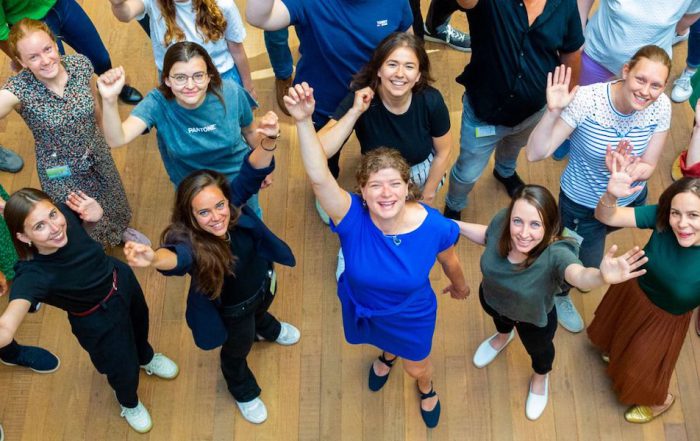Kracht en beperkingen van AI in de zorg
Hoe kan de zorgsector kunstmatige intelligentie optimaal inzetten – en wat is daarvoor nog nodig? Daarop gingen twee experts dieper in tijdens de eerste Medical Data & Pizza meetup van 2023.
Joanna Klopotowska werkt als assistent-hoogleraar Farmaco-informatica bij het Amsterdam UMC. Rob van der Mei is onderzoeker bij het CWI. Beiden zijn geboren verhalenvertellers, met veel kennis over de kracht en beperkingen van AI in de zorgsector. Zij brengen graag de juiste stakeholders om tafel brengen die innovatie in de gezondheidszorg kunnen aanpakken.
De voortdurende dans tussen belanghebbenden uit wetenschap, hoger onderwijs, bedrijfsleven en overheid maakt de regio Amsterdam zo uniek, aldus een recent artikel in Het Parool. De Metropool Amsterdam blijft dan ook grote investeringen aantrekken voor AI-onderzoek.
Lees meer over de presentaties in de 22e editie uit de serie Medical Data + Pizza meetups in het Engelstalige verslag van dit event.
13 februari 2023
Meer weten over
Neem contact op
Blijf jij ook op de hoogte?
8x per jaar nieuws en events uit de regio: schrijf je in voor de Board Update nieuwsbrief
Deel dit artikel
Wil je op de hoogte blijven?
Volg ons dagelijks op LinkedIn en schrijf je in voor de Board Update nieuwsbrief.
Lees ook deze berichten
- Eind januari presenteerden D66, VVD en CDA het nieuwe coalitieakkoord, met de ...
- Zes van de tien bedrijven in de Amsterdamse regio maken zich zorgen ...
- De innovatieve kracht van onze regionale industrie zorgt samen met de unieke ...




